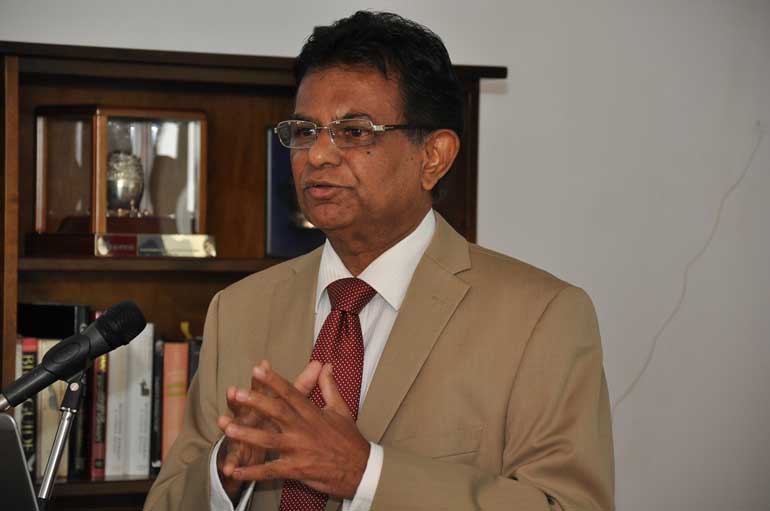Sunday Feb 15, 2026
Sunday Feb 15, 2026
Thursday, 3 September 2015 00:08 - - {{hitsCtrl.values.hits}}
 Dr. Chandra Embuldeniya
Dr. Chandra Embuldeniya
- Pic by Lasantha Kumara
By Charumini de Silva
Sri Lanka needs to transform its tertiary education system into a multi-disciplined, entrepreneurial education system to produce competitive professionals, a higher education expert said yesterday.
Sri Lanka has failed to produce even one world ranking university to be among the top 1,000 universities in the world, which showcases the poor performances of the tertiary education system, he said, delivering the keynote address at the launch of ‘Opportunities’ – career and skills summit at the Westminster House.
“The Government sector university education has replicated Oxford and Cambridge universities 100 years ago, but unfortunately Sri Lanka still practices the same. Thus, it is high time the country transform it to a multi-disciplined and entrepreneurial education system,” higher education consultant Dr. Chandra Embuldeniya said.
Pointing out Sri Lanka’s ranking in the Global Competitiveness Index 2014/15, he noted the macroeconomic environment and labour market efficiency were the weakest indicators.
“It is a terrible situation. We got to look for reforms to overcome this situation,” he added.
Dr. Embuldeniya pointed that if the country wanted to compete better at least within South Asian countries, Sri Lanka needed to produce innovative, skilled graduates who could be employed in the private sector.
Most students in Sri Lanka are more focused on their academic skills, but not on their soft and entrepreneurship skills, he noted. The lack of professional skills and application of knowledge in the corporate world has created an issue in the education system as private sector finds it difficult to recruit fresh human capital to their companies.
Explaining his point further, Dr. Embuldeniya asserted that the country’s national universities were yet to understand their value proposition. “The universities don’t understand that it does not come automatically, but it has to be really built into the strategy. The British universities have really got the value proposition into their strategy and that is a reason why there are plenty of world rank universities from the UK.”
“You expect students to come with certain skills, but remember students also come to you with expectations and if those expectations are not met you’re not going to be successful because they are going to get back into some other job, particularly in the government sector. That’s what happens to most students passing out from our national universities. Very soon they discover their expectations are not met and they go back to a very secure government job.”
He went on to say these expectations were genuine and reasonable expectations. “If you pay attention to the expectations of your graduates, you will probably be able to find some very valuable assets that will really help your company to change your position in the market.”
Therefore, Dr. Embuldeniya said the British Council’s initiative ‘Opportunities’ was an excellent chance for private sector companies to select excellent graduates to their respective companies.